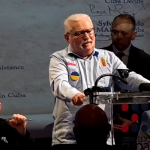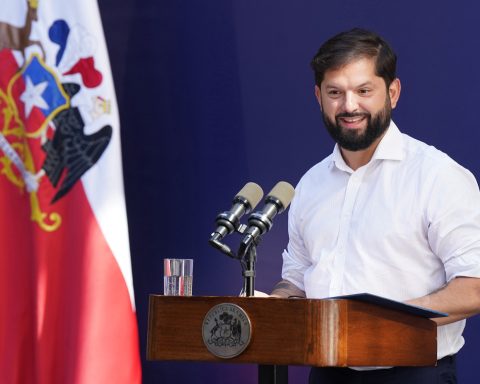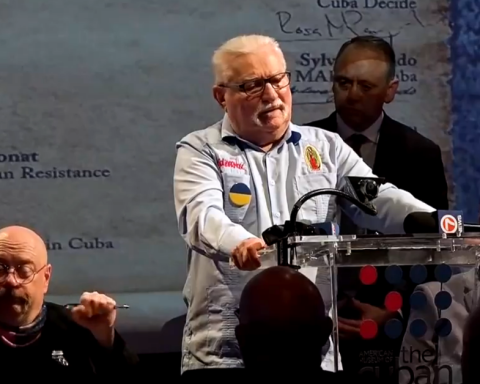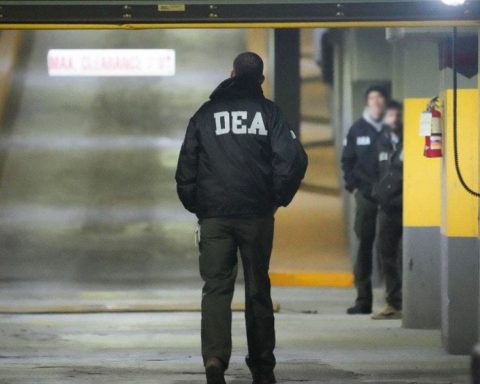AND
In an exercise of honesty, we must accept that our security and justice regime has been collapsed for decades. It is the effect of the dynamics of a historically growing population and the absence of a sufficient government response. It is a problem that feeds on itself.
There is plenty of evidence of the nonsense:
1) The crime explosion is evident in social perception and statistics.
2) Felipe Calderón’s massive National Public Security Conference, which was synthesized in PRI style, failed to simulate that the nation, society and government were turning to a reliable plan.
3) It failed due to the instability of any strategy: Zedillo creates a federal police, Fox a commission, Calderón a secretariat, Peña Nieto returns to the commission and AMLO reinvents the secretariat.
Result? A national failure. There were many years, many ideas and plans, many presidents. Something huge is imposed that we have not known how to decipher, much less confront.
The seriousness of the situation made it a central focus of the presidential campaign and President Sheinbaum’s inauguration speech. The announcement of a new project was well received without overlooking portions of skepticism in some sectors.
Later, the relocation of the National Defense Guard, the reform of constitutional article 21 and an expansive intelligence project that gives excessive powers to the simple police officer were added. There may be gains in efficiency, but with that we took a step towards the abyss in terms of human rights.
Everything points to the rational need to accept that ideas are over. The expected new vision was synthesized in four already practiced methods: addressing the causes, strengthening intelligence and investigation, consolidation of the National Guard and coordination with the federal entities.
Accepting that it is possible for great wealth to be expressed in a single sentence, the surprising omission of international cooperation is also worrying. It was possibly excluded as purpose or worse yet as carelessness, since the crime has a strong supranational component.
So where are we? What does it all mean and where does it lead us? Gentlemen called experts: if everything has been practiced before, the only new thing possible is that everything would have to be reinvented.
It was not until 1985, with the murder of DEA agent Enrique Camarena, that we began to perceive the dimension of the risk of becoming a state matter. It aroused great concern among politicians, academics, opinion makers and the people in general, who are the ones who contribute the suffering.
Add to that the election of Donald Trump as president for the next four years. It adds a burden of complexity for Mexico that forces a novel redefinition of bilateral relations.
For those who have the task of comprehensive redesign of another national security policy, they must take into account that the central failure is not having kept pace with the maintenance of the system with the evolution of social conflict.
In times that have clearly passed, every security crisis was resolved with the participation of the armies, remember student strikes in Morelia, Sonora, the IPN or 68. The same recipe was also applied to public services such as railways, telegraph operators or doctors.
Not even those bitter experiences opened our eyes. The necessary institutions were not created and we went towards what we suffer today: insecurity, complicity, impunity, inefficiency of police, prosecutors and judges.
There were no updating mechanisms, which led us to make error after error since back in the 1930s. The supposed solutions rested on wrong and insufficient responses: extrajudicial practices of the public force, increasing the use of troops in the supposed solution and minor adjustments in the police forces.
This early vision left aside attention to other inevitable factors of the formula: the administration of justice, its administration and the penitentiary regime. When one of its components is missing, the entire system collapses, making the individual effort of the parties involved insufficient.
We are faced with the risk of believing, even honestly, that our solution is adequate and that it does not need a vision that transcends us in its conception and development. We are wrong.
We live in an old problem that we could not solve with traditionalist solutions. Today only a greater definition in conception and scope can begin to be efficient. The governments of decades ago surely made an effort to fulfill their responsibilities, but they believed that it was enough to place them in the times of their function. They did not see that the challenge exceeded them.
Once the ideas are finished, the demand to invent the future seems ambitious and perhaps even adventurous, but this vision is what has transformed the world. For today, the ideas are over.
















